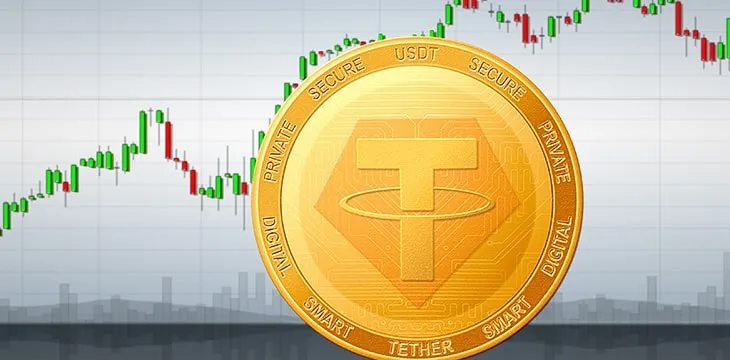|
Getting your Trinity Audio player ready...
|
There are many absurdities in the digital currency industry, but perhaps the biggest of all is that posited by Tether, the largest stablecoin issuer by market cap. For years, as investigators, journalists, and others have attempted to find out what assets back the stablecoin, Tether has maintained that revealing its ‘secret sauce’ could destroy its business model by giving competitors access to its most valuable secrets.
It’s unclear how this is so. Skeptics point out that it should be as simple as showing one U.S. dollar in the bank for each Tether issued. Nonetheless, Tether prefers to avoid showing its reserves by claiming it is backed by a complex and ever-changing range of financial instruments, the revelation of which would unravel its competitive edge.
In short, Tether claims that proving it is backed publicly would potentially destroy Tether.
CoinDesk joins the Tether legal battles
In 2021, Tether settled a lawsuit with the New York Attorney General (NYAG) and agreed to pay an $18.5 million fine. It also agreed to submit quarterly statements showing its assets. However, it is not required to make these details public.
Not long after this, digital currency publication CoinDesk filed a Freedom Of Information Law (FOIL) request for information about Tether’s reserves. After being denied, CoinDesk appealed and won, but Tether has since challenged this decision, claiming that revealing its assets would somehow give its competitors an advantage.
Tether claims that CoinDesk is interested because it’s owned by the Digital Currency Group, an investor in Circle, the issuer of a competing stablecoin. It also maintains that Tether does publish what percentage of each asset category it holds publicly but that it’s unreasonable to ask it to make public its actual reserves for the competition to see.
Shady is as shady does
To be fair to Tether, there’s probably some truth in the idea that the Digital Currency Group has a vested interest in learning what its reserves are. After Tether inevitably implodes, which a public revelation of its reserves would probably hasten, Circle does stand to gain, and thus so does the Digital Currency Group.
However, Tether’s position is simply not logical to a thinking person. It is literally claiming that proving its key claim to be backed would damage its business model. Surely, if anything, it would strengthen Tether’s dominance by proving once and for all that all the doubters were indeed just spreading ‘FUD’ and that it’s legit.
Such is the logic that is accepted in the industry. Maximalists will scream “Don’t trust, verify” from the rooftops when it comes to some matters but will in the next breath claim that we should just take Tether’s word for it that it’s truly backed by assets that make it a legitimate stablecoin.
The truth is, in the end, they’re all as shady as each other. Tether, Binance, and most other big industry players are all involved in the questionable activity of one kind or another. They’ve all violated laws and regulations, none of them are interested in transparency unless they’re legally forced to become so, and every single one of them seeks to suppress Satoshi Nakamoto’s true invention, a public ledger of truth that kills off most of their competing altcoins and the fees they generate from their trading platforms.
Will CoinDesk be successful in forcing Tether’s hand? We’ll keep you posted. Either way, with tough new regulations coming into play in the European Union, the United States, and elsewhere, you can expect Tether to crash and burn before long. Better days are coming for the digital currency industry. When Tether goes down, most of the liquidity in the markets will dry up, and the focus will shift from speculation to innovation. It can’t come soon enough.
Follow CoinGeek’s Crypto Crime Cartel series, which delves into the stream of groups—a from BitMEX to Binance, Bitcoin.com, Blockstream, ShapeShift, Coinbase, Ripple,
Ethereum, FTX and Tether—who have co-opted the digital asset revolution and turned the industry into a minefield for naïve (and even experienced) players in the market.

 08-02-2025
08-02-2025 





